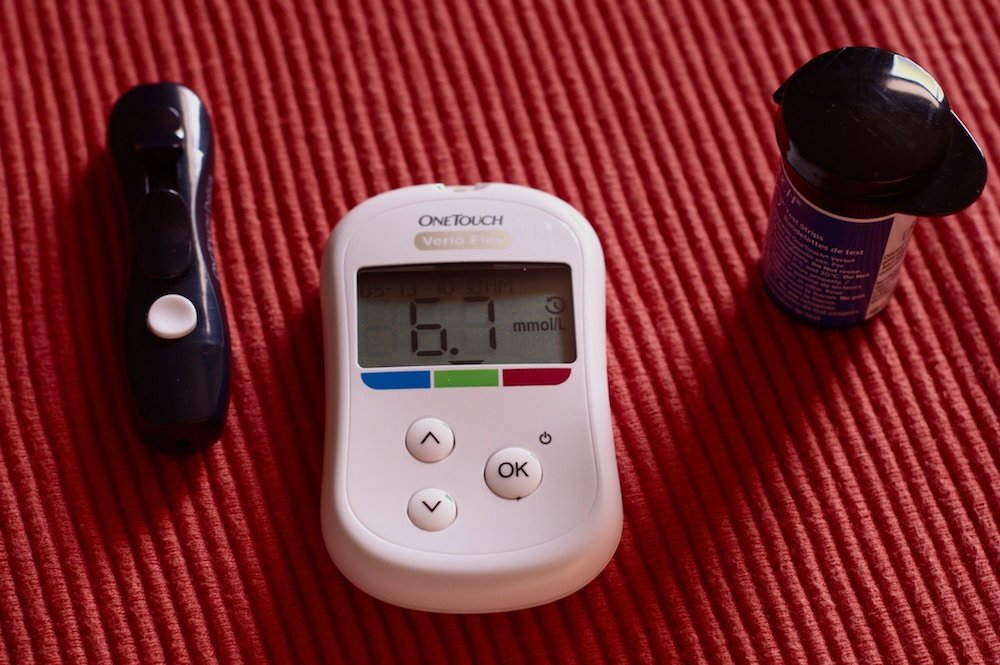Scientists, over the years, continue to link diabetes and dementia. Does sugar have a negative effect on a dementia-infected brain?
There are over twenty million people with diabetes in America alone.
Around six million of these individuals do not even know that they have diabetes. According to the Centers for Disease Control and Prevention, diabetes is the 7th leading cause of death in the USA.
Contents
- What is Diabetes
- Causing Chemical Imbalance in the Brain
- Development of Other Medical Conditions
- Increasing Risk of Cerebrovascular Diseases
- Affecting How the Brains Handles Insulin
- Causing Inflammation
- Increase the Risk of Mild Cognitive Impairment
- Build-Up of Proteins in the Blood
- Type 1 Diabetes Causes Higher Risk of Dementia
- A Decline in Cognitive Function
- Closing Remarks
What is Diabetes
Diabetes is an illness that decreases the ability of the body to convert sugar into energy. When a person with diabetes fails to control the condition, the blood remains with too much sugar.
Over time, this can lead to the damage of multiple organs in the body, including the brain.
It creates a dangerous spiral where the causes of diabetes can also result in mental deterioration.
Dementia, on the other hand, is a brain disorder that affects emotions, thinking, behavior and, to some extent, the ability to perform daily tasks.
It can reduce life expectancy as well as the quality of a person’s life.
Some studies reveal that people who have both diabetes and dementia die faster than the ones who only have dementia.
Researchers and scientists are finding more evidence linking diabetes primarily Type 2 diabetes to memory loss issues such as dementia and Alzheimer’s disease.
However, it is worth mentioning that there is still no concrete evidence on precisely what cause’s dementia and how diabetes comes into play.
It is also worth mentioning that not everyone who has diabetes will end up with dementia.
Doctors, however, do know that high insulin or blood sugar levels can harm the brain in multiple ways like:
Causing Chemical Imbalance in the Brain

Your brain depends on several chemicals in the body to function properly. Too much insulin can affect these chemicals, causing an imbalance.
Such changes occurring in the brain can trigger dementia, as well as other illnesses.
Development of Other Medical Conditions

A person who has diabetes has a high risk of developing other medical conditions like:
- Stroke
- Heart disease
- Joint and bone problems
- Kidney diseases
- Digestive problems
- Nerve damage
- Eye damage
- Yeast infection
These could hurt organs like the heart and blood vessels as well.
Damaged blood vessels usually imply that the brain will not get enough oxygen and nutrients; another factor that can contribute to vascular dementia.
This is a kind of dementia that occurs because of brain damage that mostly comes about because of blocked or reduced blood flow to the brain.
Increasing Risk of Cerebrovascular Diseases

A high percentage of people who have diabetes are at high risk of developing cerebrovascular illnesses.
These are triggered by things such as oxidative stress, endothelial dysfunction, insulin resistance, and inflammation.
Additionally, as the brain continues to age, because of changes in amyloid metabolism and other related factors, it becomes easier to develop memory issues.
Structural changes in the brain show some evidence of the association between diabetes and dementia.
Affecting How the Brains Handles Insulin

Ongoing research also points out that the link between the two medical conditions may happen as a result of the ways that diabetes affects the brain’s ability to respond to insulin and use glucose (sugar).
Note that glucose is the main source of energy for the brain.
Therefore, when cognitive function is affected, because of low levels of blood glucose, the outcome can be severe neuronal damage.
Insulin resistance makes the body producing more insulin than necessary in a bid to keep the glucose levels within a healthy range.
This can also affect the brain in that high levels of insulin can damage small blood vessels and other brain cells. Insulin resistance also affects other parts of the body.
When not enough insulin is making its way to the brain, it does not only cause the brain to function normally. It can also be the cause of a person developing small strokes, which increases dementia.
Causing Inflammation

When there is a spike in blood sugar, it can easily lead to inflammation affecting the brain and other parts of the body. This naturally leads to the damage of brain cells.
It is another factor that can lead to the development of dementia.
Chronic inflammation often leads to the formation of tau tangles and amyloid plaques brain abnormalities that are hallmarks of dementia illness.
Increase the Risk of Mild Cognitive Impairment

When talking about diabetes and dementia, it is worth noting that diabetes also contributes to the increased risk of developing MCI (mild cognitive impairment).
This is a condition where you end up experiencing more memory and cognitive (thinking) problems than the ones present as people age.
It is a set of symptoms where individuals struggle to remember things that they already know and also have issues with the ability to think.
Initially, these memory problems are usually not severe enough to bring about challenges with day-to-day living.
Eventually, some studies claim that people with MCI get dementia. MCI has been known to accompany or precede dementia.
Build-Up of Proteins in the Blood

Diabetes has also been known to contribute to the build-up of toxic proteins in the brain that is associated with dementia.
When there is too much protein in the brain, it disrupts the functioning of synapses, which are the connections that are formed between brain cells helping information to circulate to and from the brain.
The brain, at this point, may not be able to clear out the waste products.
In line with this, recent studies also reveal that elevated glucose levels in the blood can increase amyloid beta levels.
This is one of the significant components of brain plague in persons who have dementia. A build-up of plaque is thought to be a driver of complex changes in the brain leading to the development of different types of dementia.
Diabetes makes it challenging to control healthy levels of blood sugar.
This results in harmful effects on a person’s brain, increasing the risk of dementia onset.
When there is a lot of glucose in the blood, it may lead to increased neuron activity in the brain, which promotes the production of amyloid beta.
Type 1 Diabetes Causes Higher Risk of Dementia

Earlier, the article mentioned that most people with type 2 diabetes are likely to develop dementia as well.
There have also been other studies indicating that people who have Type 1 diabetes are also at risk of developing dementia.
Research shows that individuals with this type of diabetes typically face a higher risk of developing memory and thinking problems as they age compared to the general population.
Around 83% of seniors with type 1 diabetes are at risk of getting dementia as well.
With type 1 diabetes, a person’s immune system attacks insulin mistakenly triggering the production of beta cells in the pancreas. This leaves the persons with this type of diabetes with little or even no insulin in the body.
Insulin is an essential hormone in the body that enables the body to use up carbohydrates as fuel.
Individuals with type 1 diabetes are also at risk of getting hypoglycemia (low blood sugar) that could be another link between diabetes and dementia.
A Decline in Cognitive Function

It is common for people who have diabetes to experience a progressive decline in cognitive function. This has been recorded as one of the factors that usually cause the development of dementia.
The risk of getting one or more types of dementia is two-fold in seniors who have diabetes compared to their age mates.
This does not happen all at once but rather as the diabetes disease progresses, affecting more parts of the body.
With most diabetics, dementia is usually diagnosed after about three years of having diabetes.
Diabetes also accelerates issues like diabetic foot, microvascular diseases, cerebrovascular illnesses, acute metabolic events, and depression, among many others that may accelerate the onset of dementia.
Closing Remarks

When a person has one chronic disease, it is usually too much to deal with.
Sadly, there are some chronic illnesses like diabetes that frequently compound the effects of another to not only worsen the condition but also increase an individual’s risk of developing new conditions like dementia.
To stay healthy, it is important to work with your health care team to manage or prevent diabetes in a bid to reduce or completely avoid the complications it brings.
Proper diabetes management may involve things like:
- Sticking to your doctor’s advice on how to monitor blood pressure, cholesterol levels, and blood glucose.
- Quit smoking.
- Reduce alcohol intake.
- Eating healthy foods including lots of whole grains, vegetables, fruits, lean meats, low-fat cheese, and milk.
- Managing a healthy weight.
- Keep physically active (try and work out at least thirty minutes daily).
- Remain socially and mentally active and engaged to reduce the risk of getting dementia.
- Taking any prescribed medication on time.
- Examining your feet for sores on a daily basis.
Working with an effective diabetes prevention or management plan can successfully lower the development of various types of dementia.
There is still a need for further studies and research into the relationship between diabetes and dementia.
This way, we can fully understand the correlation to come up with the most appropriate solutions to tackle the conditions.







